This past year started in Berkeley, California in a lonely basement apartment on Addison Street very close to the 24-Hour Fitness Center. In several days the American Economic Association would be meeting across the Bay in San Francisco, and I would not be attending. None of the fifteen institutions of higher education to which I had carefully applied for a teaching post had invited me for an interview.  Some twenty years of overseas experience teaching micro- and macroeconomic principles, Japanese economy, US-Japan trade relations, business management, English, and cross-cultural and business communication at various levels of academia -- including some five years of experience teaching economics at two East Asian national universities, as well as a major research project on the socio-economic ramifications of Hong Kong's English language education policy -- was apparently of no value to ethnocentric US economists focused on the causes of America's pending financial ruin.
Some twenty years of overseas experience teaching micro- and macroeconomic principles, Japanese economy, US-Japan trade relations, business management, English, and cross-cultural and business communication at various levels of academia -- including some five years of experience teaching economics at two East Asian national universities, as well as a major research project on the socio-economic ramifications of Hong Kong's English language education policy -- was apparently of no value to ethnocentric US economists focused on the causes of America's pending financial ruin.

I had just returned to the United States from Saudi Arabia in July, and my stop-gap employment teaching English at a private language school had disappeared along with student demand as students returned to work and more formal studies at schools from around the world at the summer's end.
Like millions of other casual investors in the US and elsewhere I had also watched helplessly during the fall of 2008 as the value of my nominal investments plummeted. What was worse, I was having to drain my cash reserve just to survive. With nothing new coming in and the slow steady drain going out I was unable, as a result, to make good on the many great values at the market's bottom as the year progressed. Berkeley, California is an expensive place to live when you are unemployed, but it was still cheaper than San Francisco. I was devastated.
Wanton Israeli aggression in Gaza at the beginning of the year reawoke me to the plight of others, and I championed once again the Palestinian cause with numerous calls for the US government to re-examine its friendship with Israel. I even offered Senator Mitchell my many years of hard-won overseas experience, Asian bureucratic sagacity, and dedicated interest in the Middle East as my contribution to President Obama's bid for change. Though I was cooly ignored by his office, my support for President Obama continues.
My exceptional understanding of language, my passion for second language acquisition, and my ability to impart this understanding and passion to others finally overcame my deep reservations about re-entering the world's English language industry, and I made plans to attend the 43rd Annual TESOL Convention in Denver.  I set my minimum requirement for attendance to five invitations, but arrived at the boarding ramp just before it was disconnected and was told that the door to the plane had already been closed. I spent the night awake at the airport, so as not to miss the first available flight on the following day and arrived in Denver in the middle of a snow storm. I rented a four-wheel drive sports vehicle, checked in at my hotel, changed my clothes, and missed only one of my five scheduled employment interviews dressed in semi-formal attire. Good fortune and persistence secured me a fifth with someone else on the following day. All of the interviews were with Saudi institutions, and four of them were very upbeat. In the many months that followed nothing came of any them. The curtain had been drawn, and follow-up email went unanswered. What had happened? Only my solitary hike through the snow in Colorado's Rocky Mountain National Park proved worthwhile.
I set my minimum requirement for attendance to five invitations, but arrived at the boarding ramp just before it was disconnected and was told that the door to the plane had already been closed. I spent the night awake at the airport, so as not to miss the first available flight on the following day and arrived in Denver in the middle of a snow storm. I rented a four-wheel drive sports vehicle, checked in at my hotel, changed my clothes, and missed only one of my five scheduled employment interviews dressed in semi-formal attire. Good fortune and persistence secured me a fifth with someone else on the following day. All of the interviews were with Saudi institutions, and four of them were very upbeat. In the many months that followed nothing came of any them. The curtain had been drawn, and follow-up email went unanswered. What had happened? Only my solitary hike through the snow in Colorado's Rocky Mountain National Park proved worthwhile.


I had asked some 43 institutions of higher education -- both inside and outside of the United States -- to consider me for an interview. Not one US institution agreed to one.
No, I have never received formal training in the teaching of ESL or EFL, but I have on many an occasion advised those who have. One does not acquire good to excellent fluency in several languages without good knowledge of language in general and one's native tongue in specific. Although it is true that acquiring another's language does not mean that you can teach your own, from whom would you rather learn a second language? From an experienced university instructor who has himself mastered several second languages, or someone who would be your English master, because he has an M.A. degree in TESOL?  Communicative language theory and an M.A. degree in TESOL may be the going thing today, but what will be the standard several years from now? I know what I am doing!
Communicative language theory and an M.A. degree in TESOL may be the going thing today, but what will be the standard several years from now? I know what I am doing!
How about my several years of graduate training in German language and literature including certified graduate course work in comparative linguistics, language history, and a considerable body of literature spanning several centuries and a wide variety of artistic genres. Do US academicians not understand that the English language would never have been, if it were not for the Anglo-Saxons and Normans? Does my university certification in linguistics and professional work in English, French, German, and Japanese translation not matter? Moreover, I have written extensively on the organization and structure of the world's English language industry as manifest in a former British colony, and I know well the needs and concerns of second language learners the world over. My knowledge and experience have been acquired in six countries on three continents. Ask yourself, who is likely to be more adept at cross-cultural communication in a multi-ethnic classroom? A native speaker with a graduate degree in TESOL who has never left his homeland, or one that has lived, worked, and studied overseas in a variety of very different cultures.
Just before I left for Denver I received a telephone call from a complete stranger asking me, if I were not interested in teaching a course in TESOL in Seoul. The pay was not very good, but having taught TESOL would look good on my resumé, and ten years ago I did very much want to work in Korea. As I was still planning on going to Saudi Arabia in the fall where the pay would be much better, I negotiated a four-month contract.

From January until mid-June I worked diligiently to acquire the nuts and bolts of advanced webpage design. I made substantial inroads into CSS and Javascript and refreshed my already obsolete knowledge of HTML. I even learned enough jQuery to incorporate some nifty client-side dynamic into my webpages. I also upgraded my site-management software from Go-Live to Adobe's newly acquired Dreamweaver. The fruit of my labor can be seen at three sites in particular incuding my English homepage and Japanese homepage, as well as my online book about contemporary Japanese society.
I had already completed the off-line, discursive, Keynote version of my book on Hong Kong's English language industry during the fall of 2008 and realized that I did not know enough to present it sufficiently well on the internet. 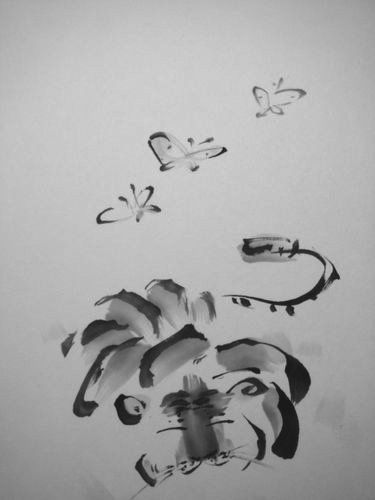 As completing the book had also led to more regret about my sudden, unintended departure from Hong Kong in the spring of 2007, I decided to revitalize my online-book on Japan. I was still in a state of transition and returning to Japan, if only in my mind, was a way to re-establish perspective about my future. My 2007-2008 Saudi experience was just behind me, my career as an economics instructor seemed over, and my future in the world's English language industry would never be certain until I could find someone who would support the HKLNA-Project -- well, at least in spirit.
As completing the book had also led to more regret about my sudden, unintended departure from Hong Kong in the spring of 2007, I decided to revitalize my online-book on Japan. I was still in a state of transition and returning to Japan, if only in my mind, was a way to re-establish perspective about my future. My 2007-2008 Saudi experience was just behind me, my career as an economics instructor seemed over, and my future in the world's English language industry would never be certain until I could find someone who would support the HKLNA-Project -- well, at least in spirit.

Just before my departure for Korea I was stopped by an officer and arrested for failure to stop at a four-way, circular stop with four well-marked cross-walks. I had just left my house on my bicycle and was headed for the neighborhood pool. I was in no particularly hurry and the intersection was empty except for a police car that approached it on my right at the same moment. I slowed until the officer had acknowledged my presence, nodded in gratitude for his allowing me to pass in front of him, and continued through the intersection. Moments later I heard a siren and soon the officer was next to me indicating that I should stop.  Before it was over three more officers had arrived in two additional cars, and I could only wonder how the City of Berkeley was spending the rest of our tax dollars, for I know it was not on the replacement of one-meter diving boards at the municipal pools that I had requested the previous year. Was it my Free Gaza armband and the narrow band of tinted glass over my eyes that had frightened him. Was he expecting me to thank him for pointing out that I had slowed, but not stopped at a stop sign at a four-way turn-around in a quiet residential district with no traffic.
Before it was over three more officers had arrived in two additional cars, and I could only wonder how the City of Berkeley was spending the rest of our tax dollars, for I know it was not on the replacement of one-meter diving boards at the municipal pools that I had requested the previous year. Was it my Free Gaza armband and the narrow band of tinted glass over my eyes that had frightened him. Was he expecting me to thank him for pointing out that I had slowed, but not stopped at a stop sign at a four-way turn-around in a quiet residential district with no traffic.
I had owned my bicycle for nearly a year and rode it several times a day to run errands, attend meetings, and visit my favorite hangouts. During this not so brief period I had been witness to several traffic incidents involving bicyclists and automobile drivers. Although it sometimes occurred that a motorist would not yield to a mounted bicyclist at a cross-walk, it was relatively rare. When I received the near US$200 fine that I was told to pay or appear in court, I dutifully prepared my case. As the hearing would take place after my expected date of departure for Korea, I had my statement and evidence mailed to the court house via registered mail with an explanation about my expected absence, and I requested advice. I never received a reply.

After passing through security in San Francisco and Vancouver with my cheaply designed, but extremely handy and very reliable corkscrew it was confiscated in Tōkyō.  Surely my Free Gaza wristband had not alerted the officer to a possible terrorist attack. Was this an omen of things to come? Or, was it the Japanese way of telling me that rice wine and beer are the preferred alcoholic beverages of East Asia. Later that day I arrived at Korea's Incheon Intenational Airport and was taken by my employer to my first Korean love hotel to spend the night. Although there was no one in the room with whom to make love there was an abundance of condoms on the table. If only I had not been too tired to find a partner! When I arrived at the hospital two weeks later for my health examination with my new colleague and our bilingual staff escort, we were both told that we had urine in our blood. What an unusual coincidence? So, I ate Korean food only once a day instead of three times, and the problem disappeared. It was the first time in my life to eat highly spiced food for breakfast on such a regular basis. The high blood pressure that was also reported has not gone away so easily, but I have since gotten it under control. The cause for this appears to be related to my genes and advancing years -- this despite my daily workouts and extremely low at-rest heart rate. I will remember 2009 as the year that my physical well-being momentarily caught up with the date on my birth certificate.
Surely my Free Gaza wristband had not alerted the officer to a possible terrorist attack. Was this an omen of things to come? Or, was it the Japanese way of telling me that rice wine and beer are the preferred alcoholic beverages of East Asia. Later that day I arrived at Korea's Incheon Intenational Airport and was taken by my employer to my first Korean love hotel to spend the night. Although there was no one in the room with whom to make love there was an abundance of condoms on the table. If only I had not been too tired to find a partner! When I arrived at the hospital two weeks later for my health examination with my new colleague and our bilingual staff escort, we were both told that we had urine in our blood. What an unusual coincidence? So, I ate Korean food only once a day instead of three times, and the problem disappeared. It was the first time in my life to eat highly spiced food for breakfast on such a regular basis. The high blood pressure that was also reported has not gone away so easily, but I have since gotten it under control. The cause for this appears to be related to my genes and advancing years -- this despite my daily workouts and extremely low at-rest heart rate. I will remember 2009 as the year that my physical well-being momentarily caught up with the date on my birth certificate.

Koreans are not Japanese, but the manager of my next temporary Seoul lodging was a bilingual Korean with good proficiency in Japanese who helped me greatly during my initial period in Korea. Although very distant from my school's head office in Gangnam, Mapo is centrally located, and it was a great place to get started -- so much so, that I was reluctant to leave my new dwelling when my place of employment shifted more permanently to Daejeon.
From the beginning of July until the end of August I led nine experienced and fledgling Korean English teachers through intensive TESOL training. The course was designed by California State University, San Bernadino and promoted and administered by my school in Korea. I made the course rigorous by creating a team of dedicated learners with built-in competition and shared learning. At the graduation ceremony several of my students were overcome with emotion -- probably a combination of both joy and relief about having completed the course successfully. 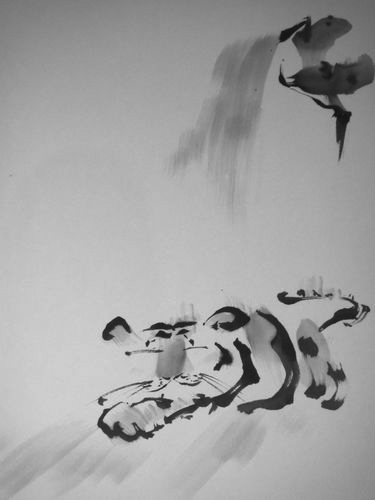 I received several presents that I shared with my students and management, and we went to lunch together and later coffee. The 120-hour course was a great experience for everyone involved, and my future with my new employer appeared very promising.
I received several presents that I shared with my students and management, and we went to lunch together and later coffee. The 120-hour course was a great experience for everyone involved, and my future with my new employer appeared very promising.

Disaster struck in the following two weeks. This was because the initial adjustment of several students was improperly handled (see Daejeon Limericks) at the location of my instruction. A political and ideological struggle ensued. I was eventually asked to vacate my post and protested at the Labor Commission with a charge of unfair dismissal. I had good reason to believe that I should remain in my current employment. Two months later I was awarded KRW3,000,000 for withdrawing my case at the Labor Commission. I had little choice, because the commission encourages compromise and reconciliation on the one hand, and the Commission had made a procedural that could have endangered the outcome of my case on the other. So, I agreed to withdraw and received only partial compensation. This experience taught me a great deal about Koreans and Korean society very quickly and caused me to write a report about my experience with the Korean Immigration Service. After all, the underlying motivation for my having gone to the Labor Commission was to remain in Korea.
In anticipation of the imminent issuance of a new work visa and in compliance with the Korean Immigration Service's exit order I headed off to Fukuoka福岡 where I arrived safely after three hours on my first high-speed ferry. I spent the next 90 minutes in a Japanese taxi looking for a place to obtain foreign exchange, so that I could find a place to spend the evening and pay the taxi driver for his faithful service. Although it was not the most enjoyable experience, the driver spoke no English, and I was pleased how well my Japanese foundation had survived my near decade-long absence from the northeast asian archipelago. At the suggestion of my taxi driver I spent the evening in a Japanese business hotel.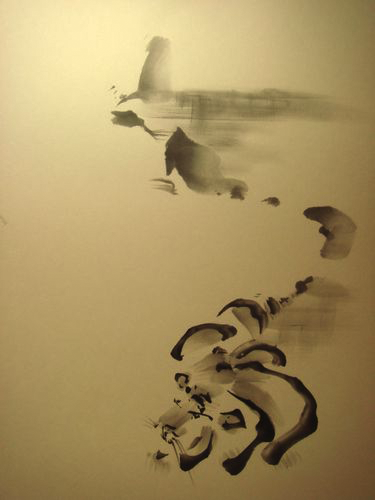
The next five days were a mixed experience as my plans to explore Kyūshū九州 -- a part of Japan that is not part of the Kantō Plain and some great distance from Tōkyō, Yokohama, and Yokosuka where I had spent some nine years a decade earlier -- were spoiled by delays emanating from the Daejeon Immigration Office and the eventual realization that I should have boarded a plane to Seattle instead of taking the ferry to Fukuoka. As a result, I spent nearly an entire week in the business hotel, explored Fukuoka instead, and returned to Korea as a tourist with a visa number, but no visa and no employment.
During my brief stay I
did manage to refresh the past and obtain two Japanese books that I brought back with me to Daejeon and are helping me now with my online books about Japan and Hong Kong's English language industry.

What the new year will bring I have little idea -- continued work on my two books until my savings are completely drained, and I bring my life to a tragic, but just end, rejected by the mediocrity that I have worked so hard to overcome.
I refuse to end my life in poverty and am tired of being rejected by those whom I can help most. I have much to offer in the fields where I have sought employment, but my career path does not match the statistical stereotypes sought by human relations departments the world over. Moreover, I have no desire to spend the rest of my life defending myself in a court of law where I am more viewed as a predator of small businesses than a proponent of national educational reform.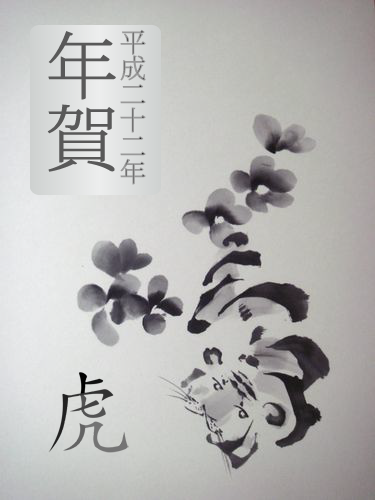
If I make it through this next year, then I will be truly amazed, because even a cat has only nine lives, and I have already lived so many that I must be very close to my last. This said, I do feel that I could make it until I am 90, if only people would spend a little more time exploring the depths of my experience and knowledge with me, rather than on their own in the belief that they will find something that I do not already know and cannot properly defend. My goal is to bring about social and educational reform -- not rise to the top of the status quo.
Social complacency and bureaucratic mediocrity, whether it is in the private or public sector, appear to be my greatest enemies, and their academic outposts are well-manned with both men and women.
While at the diving pool in Hong Kong I was taught to nod upward. I have yet to find a diving pool in Korea, but the Metro Fitness gym in Daejeon and its saunas and hot baths provide me with the routine and stamina to at least keep my head up and survive the seemingly endless roller coaster that my life has recently become. No, I have no New Year's resolution, but I do have a New Year's wishعاماً سـعيداً that Gaza and the Palestinian people are made free from Israeli oppression, world apathy, and the stigmatism of global terror, and of course, that I find new employment forthwith that will allow me sufficient time to finish my books and still survive in the world's market place. Am I wishing for too much?

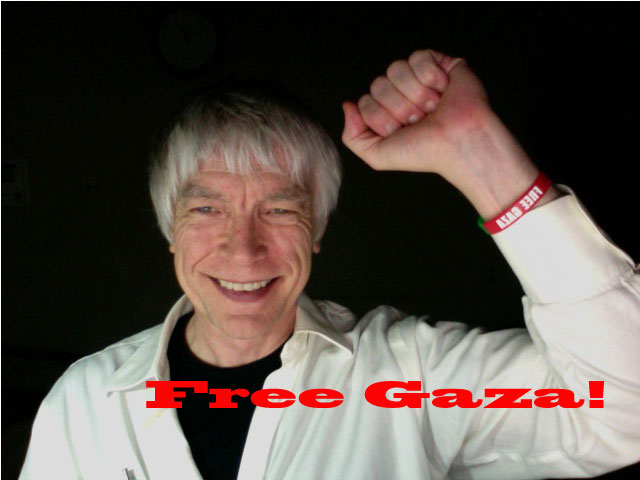
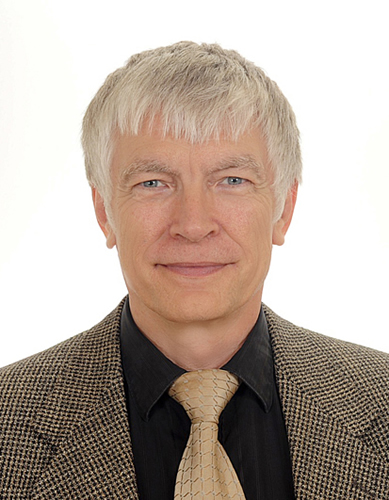
Happy New Year!새해 복 많이 받으세요!
Iwato이와도
The artistry of this page was made possible with the monochromatic water-color paintings水墨絵 of Shimura Kazu志村一隆 adapted by me for presentation on this holiday greeting.